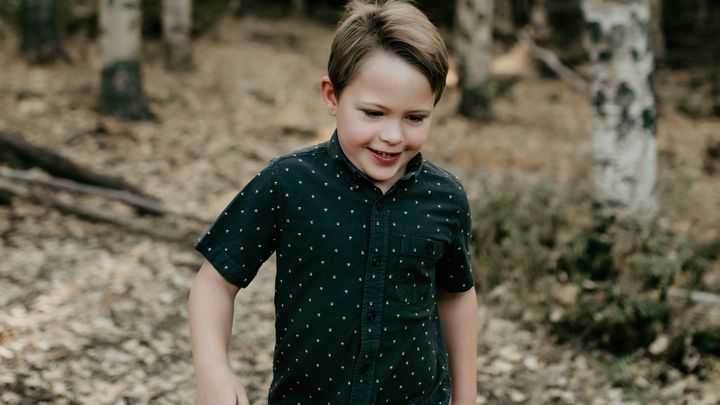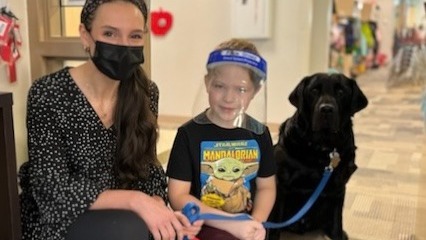
Service Dog for Linus
Donation protected

Dear friends and family,
As you probably know - since receiving Linus' Autism diagnosis - we have worked hard to educate ourselves and do everything in our power to help Linus live his very best life.
As part of this process, we learned about the many benefits a service dog can provide with autism support - so we reached out to Canine Partners of the Rockies and began the application process. In working with Canine Partners of the Rockies, we have determined that a service dog would greatly help Linus and our family.
You are probably wondering what an Autism Service dog does and how it is different from other dogs?
Service dogs receive extensive training and official certification to help perform functions that present a challenge for a person with a disability. The Americans with Disabilities Act mandates that people bring their service dogs to all public areas – including restaurants and stores. Service dogs typically wear a “cape,” or harness, that identifies them and lets bystanders know they are working and should not be disturbed. Each service dog is trained according to the needs of the person it will assist.
An Autism Service Dog can help with:
Social Engagement
Kids with autism experience some difficulty in socializing with others. A service dog can help an autistic child to break the ice and motivate them to mingle with others. When needed, assistance dogs can divert the attention of autistic kids away from distractions and help them focus on a task.
Calm During Meltdowns
Service dogs can sense and feel the emotions of people they attend to. An assistance dog can sometimes reduce the severity or circumvent the onset of a meltdown.
Cognitive and Emotional Growth
Autistic kids sometimes lack cognitive skills. Their rigid behavior often makes it difficult to connect emotionally with others. Assistance dogs promote positive feelings of care, love, and empathy in kids with autism. Walking the dog provides exercise and a “social magnet” to ease conversation with other children. Learning to care for the dog teaches responsibility and practical skills.
Sensory Support
Children with autism need sensory stimulation through regular games and activities. Service dogs can be trained to assist autistic children by employing various games and activities like tug of war, hide and seek, and massage.
Reassurance During Anxiety
An assistance dog can make a perfect companion when battling a sudden bout of anxiety and restlessness. The constant presence of a specially trained dog offers a calming focus for a person with autism. It can help children and adults with trips to the dentist, overcoming anxieties about vaccinations and starting school.
Improved Vocal Skills
Autistic kids have impaired communication skills. It has been noted that such kids speak more frequently when a service dog is around. An assistance dog can bring significant change in speech-challenged or nonverbal children by promoting their speech.
Companionship
Autistic kids have difficulty making eye contact. This developmental disorder also prevents them from socializing and bonding with others. However, service dogs can quickly bond with children. This helps the child experience friendship and cope with loneliness. Unlike human friends, dogs are non-judgemental, which further supports an autistic child becoming comfortable around others. Nothing beats the enthusiastic wag of the tail from a friend that never judges!
Help for the Whole Family
Autism is as stressful for families as the child suffering from it. However, service dogs don't just help autistic kids battle the disorder, but they also help parents and families find peace and strength. Studies have shown that the support from assistance dogs can help parents and siblings of an autistic child feel relaxed and experience less stress.
Training a service dog is an expensive endeavor. The service dogs are bred from other service dogs and are screened for any health issues. The hope is to provide a healthy and happy working dog for as many years as possible. They are typically placed around three years of age (about how long it takes to complete their training). Training each dog costs CPR $25,000 (including living, training, travel, and veterinary expenses).
We are responsible for $10,000, and generous donors cover the rest.
Giving Linus the gift of such a wonderful and helpful companion would mean so much to Linus and our family.
We are very grateful to you for a donation of ANY amount!
THANK YOU!!!
With sincere gratitude,
Bart, Julie, Linus and Mazzy Dahl
Organizer
Julie Dahl
Organizer
Castle Rock, CO